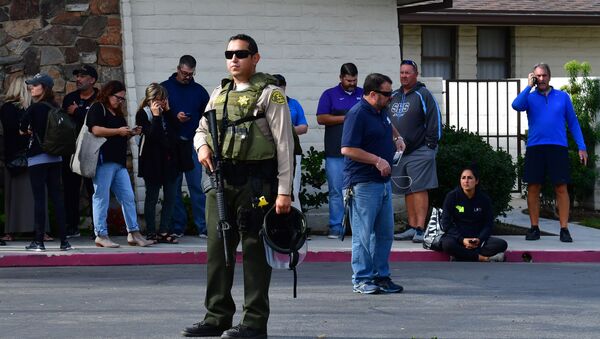Lacey Wallace, an assistant professor of criminal justice at Penn State Altoona, reflects on the frequency of shooting incidents in the US and on possible causes of these tragedies.
Sputnik: Does a rise in the number of these tragic incidents lead to an increase in the number of people who purchase guns for self-defence? What’s your take on this?
Lacey Wallace: Yes. Studies show that gun purchases in the US do rise after well-publicized mass shootings. Some people buy guns out of fear, others out of worry over the possibility of stricter gun control policies. But the rise in gun sales is only temporary and fades after a few months. Some more recent work also shows that this pattern doesn't follow all mass shootings, only those with widespread media attention.
Sputnik: Why we have seen a rise in shootings in California, the state which is believed to have the strictest gun laws?
Lacey Wallace: It's important to remember that California has a large population compared to other US states and that some areas in California have a pretty high population density.
Sputnik: Many countries, such as Australia and most recently New Zealand, have moved to curtail or even ban private gun ownership, and this notion is regularly suggested by Democrats and anti-gun lobbyists. How would such a move be possible in a country with over 400 million privately-owned firearms?
Lacey Wallace: I doubt gun buybacks or bans would be very feasible as a gun violence prevention measure in the US. These laws do not address the millions of firearms already owned in the US. Even gun buybacks, which have owners trade guns for cash, would likely be ineffective because of the cost of reclaiming so many firearms. Also, buybacks depend on owners' willingness to sell their guns. Groups like the NRA will also fight legislation that makes an attempt to ban/take firearms.
Sputnik: How would you compare the frequency and severity of mass shootings in states with strict and less strict gun laws?
Lacey Wallace: A 2019 study by Reeping and colleagues in the British Medical Journal (BMJ) found higher rates of mass shootings in states with more permissive gun laws.

